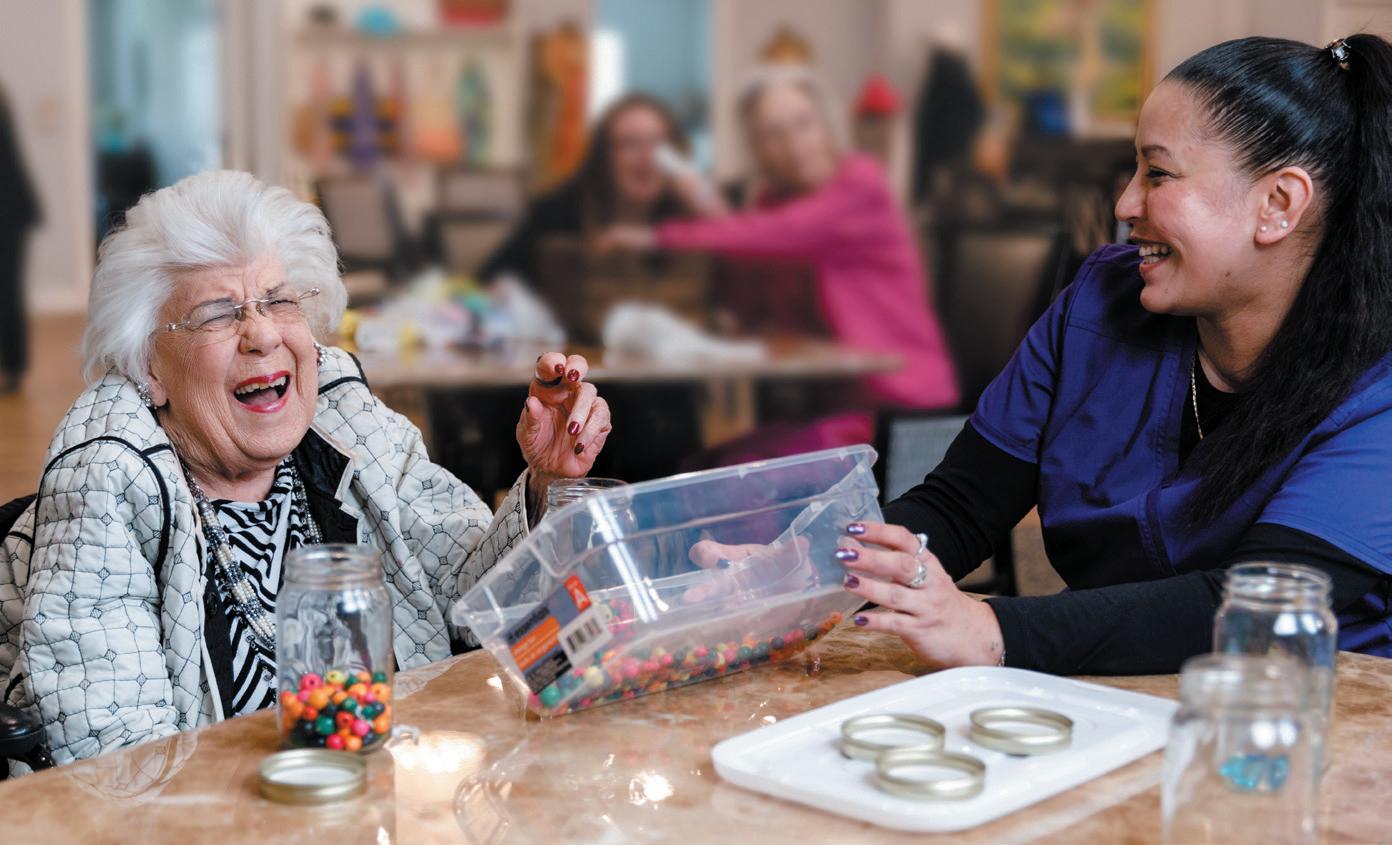
2 minute read
Tips for Effective Alzheimer’s Communication
Alzheimer’s disease presents many challenges, and communication is a big one. Despite the challenges, you can communicate effectively with a loved one who has Alzheimer’s. Consider these tips provided by the Mayo Clinic staff:
• Speak clearly. Introduce yourself. Speak in a clear, straightforward manner. • Show respect. Avoid secondary baby talk and diminutive phrases, such as
Advertisement
“good girl.” Don’t assume that your loved one can’t understand you, and don’t talk about your loved one as if he or she weren’t there. • Stay present. Maintain eye contact, and stay near your loved one so that he or she will know that you’re listening and trying to understand. • Avoid distractions. Communication may be difficult—if not impossible— against a background of competing sights and sounds. • Keep it simple. Use short sentences and plain words. As the disease progresses, yes-no questions may work best, and only one question at a time is best. Break down requests into single steps. • Don’t interrupt. It may take longer than you expect for your loved one to process and respond. Avoid criticizing, hurrying and correcting. • Use visual cues. Sometimes gestures or other visual cues promote better understanding than words alone. Rather than simply asking if your loved one needs to use the toilet, for example, take him or her to the toilet and point to it. • Don’t argue. Your loved one’s reasoning and judgment will decline over time. To spare anger and agitation, don’t argue with your loved one. • Stay calm. Even when you’re frustrated, keep your voice gentle. Your nonverbal cues, including the tone of your voice, can send a clearer message than what you actually say. Online Resources: Alzheimer’s Association – alz.org Alzheimer’s Foundation of America – alzfdn.org BrightFocus Foundation – brightfocus.org Caregiver ACTION Network – caregiveraction.org National Institute on Aging – nia.nih.gov WebMD – webmd.com
HOMEMADE TURMERIC ALMOND DRESSING
Source: epicurious
Makes 3/4 cup
This creamy dressing is great drizzled over your favorite salad, grain bowl or cooked veggies. Bonus: Turmeric offers improved brain function and anti-depressant benefits.

Ingredients
3 (2-inch) pieces fresh turmeric, peeled and roughly chopped, or 2 teaspoons ground dried turmeric 1 (1-inch) piece fresh ginger, peeled and roughly chopped 1 garlic clove, roughly chopped 1/4 cup plus 2 tablespoons fresh lemon juice 3 tablespoons natural almond butter 1 tablespoon honey 1/4 teaspoon kosher salt
Combine all ingredients with 3 tbsp. water in a blender and purée until smooth, about 3 minutes. Taste and adjust salt or lemon juice, if desired.

The Essential
Caregiver Toolkit
We’ve compiled a comprehensive toolkit for our fellow Texas caregivers, like y-o-u. New tools, tips and resources added frequently.

Access the online Essential Caregiver Toolkit at





